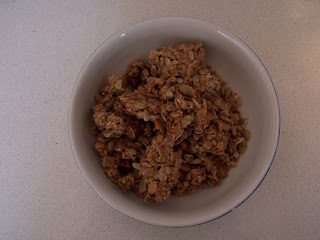 Translation: plastic is out. Reusable is in. Reusable cotton bags, to be exact, courtesy of Eco-Chic. Eco-Chic, an Israeli company, recently began marketing it's reusable, compact, strong, natural cotton string bags through stores (mainly health food stores) and it's website with the purpose of reducing plastic bag consumption in Israel. According to Eco-Chic's website, the cotton bags are strong enough to hold 2-3 plastic bags' worth of items but are compact enough to fit in your purse without taking up too much space.
Translation: plastic is out. Reusable is in. Reusable cotton bags, to be exact, courtesy of Eco-Chic. Eco-Chic, an Israeli company, recently began marketing it's reusable, compact, strong, natural cotton string bags through stores (mainly health food stores) and it's website with the purpose of reducing plastic bag consumption in Israel. According to Eco-Chic's website, the cotton bags are strong enough to hold 2-3 plastic bags' worth of items but are compact enough to fit in your purse without taking up too much space.According to the Israel Union for Environmental Defense, 430 million plastic bags are distributed in Israel every month. These bags, which far outlive their users by hundreds of years, end up polluting rivers, waterways, landfills.... It's an ugly situation. A law has been proposed to the Israeli Knesset to levy a fee on plastic bags that would have to be paid by consumers, but who knows if that'll go through. Either way, it's obvious that the reduction of individual plastic consumption is up to individuals.
Eco-Chic bags are available in stores all over the country - their website lists where their bags can be found in Tel Aviv, Jerusalem, Petach Tikva, Gadera, Zichron Ya'acov... and the list goes on. But if these bags aren't for you and you're feeling creative, you could make your own bag from cloth scraps or follow No Impact Man's advice and make shopping bags out of old tank tops.





